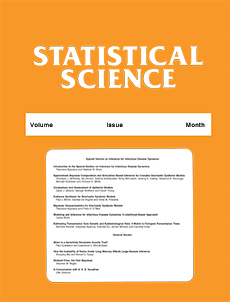Abstract
Quasars, the brightly glowing disks of material that can form around the super-massive black holes at the centres of large galaxies, are amongst the most luminous astronomical objects known and so can be seen at great distances. The most distant known quasars are seen as they were when the Universe was less than a billion years old (i.e., $\sim\!7\%$ of its current age). Such distant quasars are, however, very rare, and so are difficult to distinguish from the billions of other comparably-bright sources in the night sky. In searching for the most distant quasars in a recent astronomical sky survey (the UKIRT Infrared Deep Sky Survey, UKIDSS), there were $\sim\!10^{3}$ apparently plausible candidates for each expected quasar, far too many to reobserve with other telescopes. The solution to this problem was to apply Bayesian model comparison, making models of the quasar population and the dominant contaminating population (Galactic stars) to utilise the information content in the survey measurements. The result was an extremely efficient selection procedure that was used to quickly identify the most promising UKIDSS candidates, one of which was subsequently confirmed as the most distant quasar known to date.
Citation
Daniel Mortlock. "Finding the Most Distant Quasars Using Bayesian Selection Methods." Statist. Sci. 29 (1) 50 - 57, February 2014. https://doi.org/10.1214/13-STS432
Information





